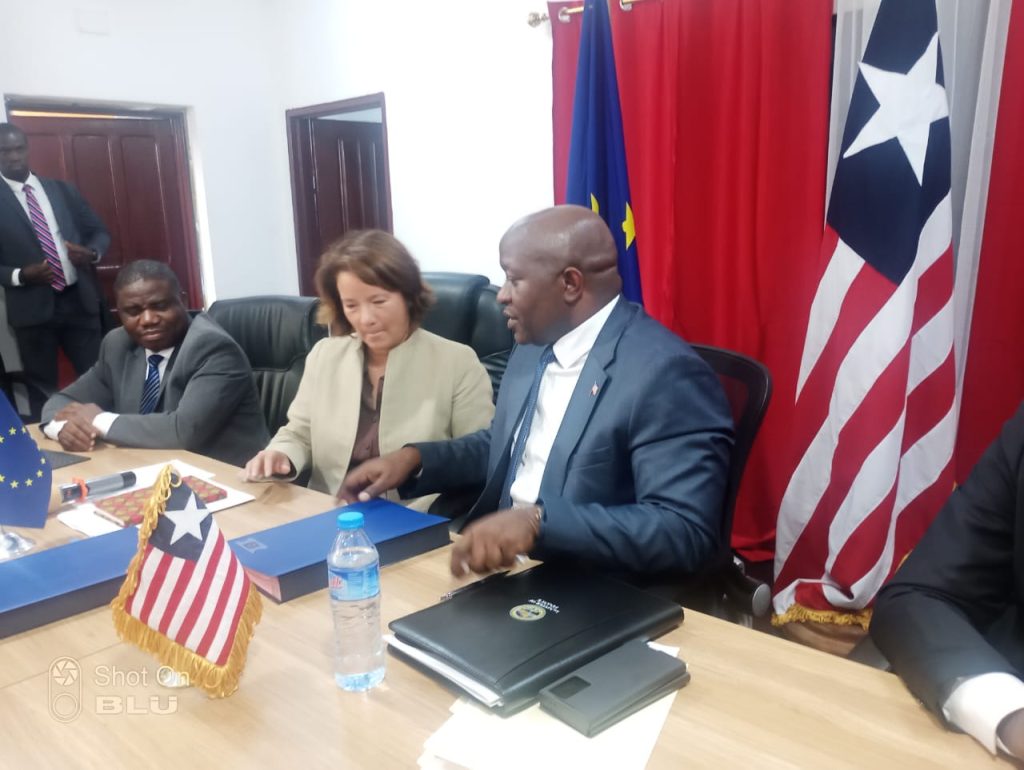The European Union has solidified its commitment to Liberia’s development by signing a substantial financing agreement worth €56 million (approximately US$62 million) in direct budget support, accompanied by an additional €7 million grant for complementary measures. This financial boost aims to bolster Liberia’s national budget and reduce its reliance on external funding, demonstrating the EU’s confidence in the Liberian government’s commitment to reform and good governance.
EU Ambassador Nona Deprez emphasized the significance of the direct budget support, highlighting the shared goals between the EU and Liberia in promoting sustainable development and good governance. The complementary measures, to be managed by the Swedish International Development Agency (SIDA), will focus on enhancing public finance management, bolstering domestic revenue mobilization (including from natural resources), strengthening accountability and transparency through civil society engagement, and improving audit systems. The agreement, a result of extensive negotiations and consultations with various Liberian ministries and agencies, marks the beginning of a collaborative journey towards implementing crucial reforms.
The EU’s financial intervention comes at a critical juncture for Liberia, as the country grapples with the suspension of USAID-funded projects. The EU’s continued support stands in contrast to other partners who have scaled back their commitments. Ambassador Deprez expressed hope that an initial disbursement of up to €22 million could be made before the end of 2025, contingent upon the Liberian government’s submission of a disbursement request. The primary objectives of the reforms are strengthening public financial management and oversight, improving domestic revenue collection, particularly from the natural resources sector, promoting transparency and accountability, fostering a conducive business environment for investment in local rice value chains, and reinforcing Liberia’s network of protected areas.
Liberian Finance Minister Augustine K. Ngafuan expressed profound gratitude to the EU for its steadfast support, especially during challenging times. He acknowledged the EU’s commitment to Liberia’s development, contrasting it with the withdrawal of support by other partners. Minister Ngafuan stressed the importance of the grant in bolstering the Liberian government’s ability to generate revenue and move towards self-sufficiency. The minister emphasized the government’s commitment to using the funds responsibly and effectively to improve the lives of Liberians across the country.
The EU’s budget support signifies a vote of confidence in the Liberian government’s reform agenda, which includes a policy dialogue framework and agreed-upon indicators to ensure accountability and progress. The ultimate goal is to enhance Liberia’s domestic resource mobilization capacity, reducing dependence on external funding. Minister Ngafuan highlighted the government’s progress in domestic revenue mobilization, noting that in the previous year, they had raised a significant portion of the national budget through internal resources. The government aims to continue increasing its contribution to the budget by expanding the tax base and improving efficiency.
This substantial financial support from the European Union marks a critical step towards strengthening Liberia’s financial stability and fostering sustainable development. The collaborative approach, with a focus on strengthening governance, improving revenue generation, and promoting transparency, reflects a shared commitment to empowering Liberia to achieve greater economic autonomy and improve the lives of its citizens. The successful implementation of these reforms will be crucial in paving the way for a more prosperous and self-reliant future for Liberia.


